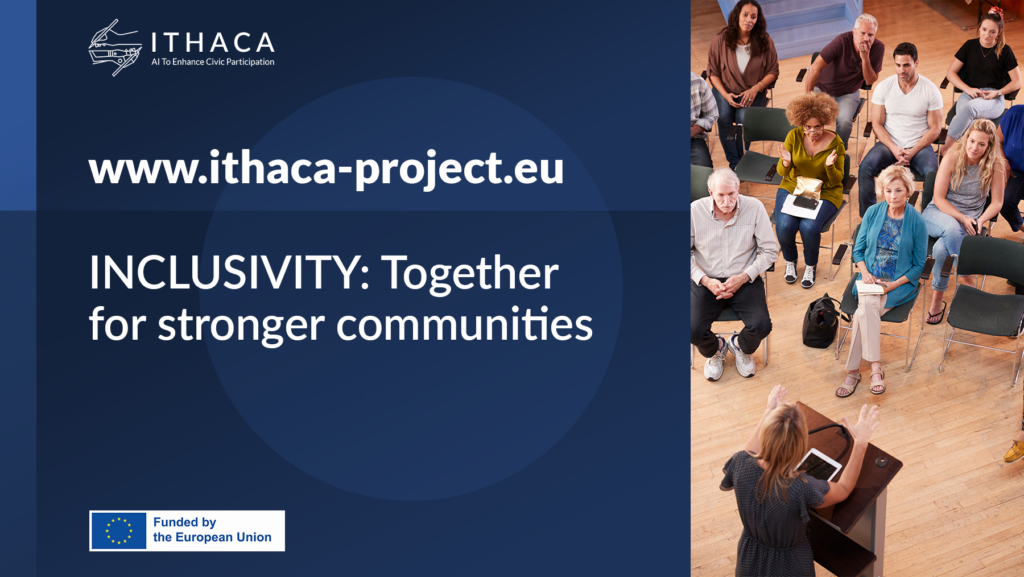In today’s digital age, understanding what people need from technology is crucial. Especially in places with lots of different people involved. It’s not always easy for everyone to say what they need, though. Primarily, if they haven’t used similar tools before. This can make it hard to figure out how to make things better. How did we cope with this challenge when collecting input for our planned design of the ITHACA platform?

To encourage more people to get involved in their communities, we need a multi-faceted approach. One important part of this is using inclusive workshops. We designed them to gather feedback from a wide range of people, helping us understand what really matters when it comes to getting people engaged online.
Precious feedback from the introductory workshop
After running a successful online introductory workshop, we followed up with a detailed survey the next day. The online survey prompted participants to share their views about different aspects of the workshop. We wanted to know what they thought worked well and what could be improved, so we could make future events even better.
The survey covered a few main areas:
BASIC INFORMATION
Where participants were from, their gender, and their level of experience.
FEEDBACK ON WORKSHOP MATERIALS
The quality of workshop materials, like presentations – whether they were easy to understand, and participants found them helpful.
INPUT FOR FUTURE STUDIES
Participants shared their thoughts on what helps or hinders online civic engagement, which will guide our future work.
Study on key factors of civic engagement
We also conducted a study with representatives of vulnerable groups to identify key factors that affect online civic engagement. The study comprised of four main steps:
GATHERING INITIAL INPUT
Representatives shared their ideas about what helps and what gets in the way of civic engagement.
ANALYZING DATA
We looked at all the input to see what themes emerged.
RANKING THE IDEAS
Participants ranked the most important factors based on their own experience.
CREATING AGGREGATED LISTS
We combined everyone’s rankings to see which factors were most important overall.
Onsite introductory workshops
Alongside surveys and studies, we held also onsite introductory workshops in two cities: Martin (Slovakia) and Brasov (Romania). Conducted in the local language, they included presentations, group discussions, and individual activities. Their aim was to engage a diverse group of people in conversations about civic engagement.
The input we received from representatives enriched these workshops, helping us adapt them to local needs. As we move forward, we’ll use what we’ve learned to make our workshops even better and to encourage more people to get involved in their communities online.
Addressing digital literacy gaps and explaining the role of technology will be key to making sure everyone can participate. By using inclusive workshop methods and listening to feedback, we can create more accessible opportunities for people to engage meaningfully in civic life.

Funded by the European Union. Views and opinions expressed are however those of the author(s) only and do not necessarily reflect those of the European Union or the Europe Research Executive Agency. Neither the European Union nor the granting authority can be held responsible for them.